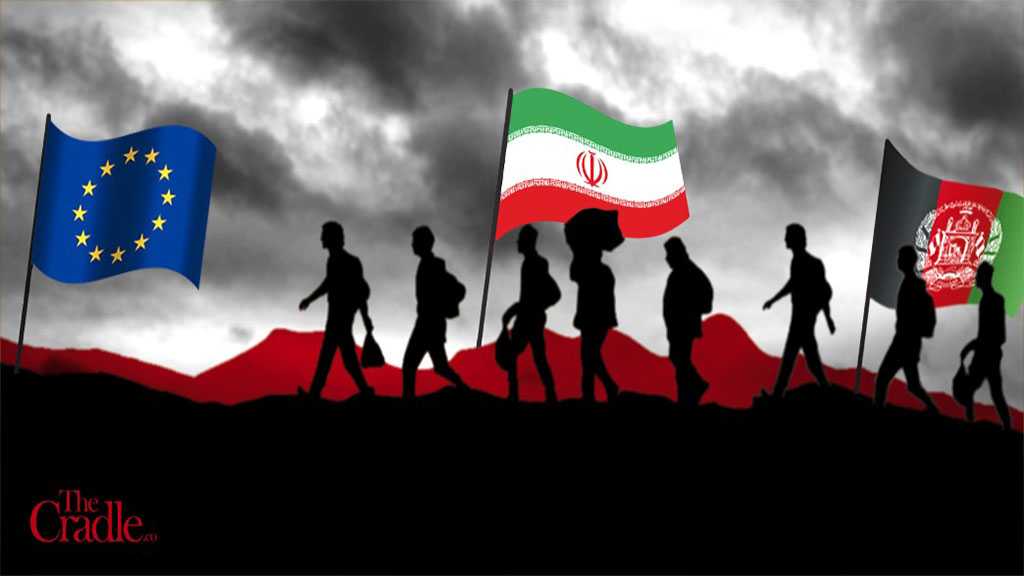
Another Western Assault on Afghanistan Will Backfire Inside Europe

By Dr. Mohammad Marandi – The Cradle
Jimmy Carter’s National Security Advisor Zbigniew Brzezinski persuaded the former US President to sign the first directive for secret aid to Afghanistan’s anti-Soviet mujahideen almost seven months before the Soviet invasion. Brzezinski believed that this aid would induce a Soviet military intervention and drag it into a quagmire similar to what Vietnam was to the US. The intention of both Brzezinski and the “human rights” oriented Carter was to sacrifice the people of Afghanistan in order to weaken their Soviet adversary.
This was just the beginning of the long and horrific US and Western involvement in the destruction of Afghanistan. The massive US and Saudi funding and promotion of the extremist Wahhabi ideology – including textbooks printed by the University of Nebraska – led to the calculated rise of Wahhabi intolerance across Afghanistan and even Pakistan. This was done to target US and Saudi Arabia’s Asian adversaries, but it also destroyed the fabric of Afghanistan’s civil society and deeply intensified sectarianism in Pakistan.
Following the September 11, 2001 blowback attacks on the United States, and during the subsequent two decades-long NATO occupation of Afghanistan, Western media, think tanks, and state-affiliated scholars persistently tried to reinforce the dishonest narrative that the occupation was both constructive and welcomed by the native population. Relatively little was said about the bombings of weddings or hospitals, the drone assassination program that overwhelmingly killed civilians, or the regular murders carried out during “anti-terror sweeps” by unaccountable Western soldiers. All was more or less well – until the US withdrawal.
Iran firmly believes the US military’s sudden withdrawal was intended to create chaos and a vacuum to destabilize the region. The swift and stealthy US troop exit from Bagram Air Base without informing the newly appointed Afghan commander, as well as the evacuation of military advisors and contractors, left the shocked Afghanistan Army without a functioning air force or helicopter support.
The fact remains that there was almost no resistance across the country to the Taliban takeover. If the US occupation was seen as legitimate or progressive, why didn’t any of the pro-US politicians or the US-trained soldiers put up a real fight? People still remember the dark history of Taliban rule, yet they preferred not to sacrifice their lives for a corrupt regime propped up by a corrupt and brutal foreign occupation.
So far, the Islamic Republic of Iran has played a significant role in preventing a civil war from erupting. After two decades of dialogue and negotiations with the Taliban, the painstaking marginalization of the more extreme elements in the group’s hierarchy, and the Taliban’s years-long adherence to commitments made to Tehran, the Iranians believe that it is best for its allies in Afghanistan to wait and see if the Taliban will continue to abide by those commitments.
Afghanistan has a potentially bright future by joining an increasingly integrated network of rising Asian nations to develop trade and local infrastructure. But the US, NATO, and their oil-rich allies in the Persian Gulf are already planning to drag Afghanistan towards extremism and deeper crisis.
While Iran is encouraging dialogue between the opposing Afghan factions and the currently dominant “moderate” wing of the Taliban, regional US allies are already funding different factions among the extreme (currently marginalized) elements of the Taliban. As in Syria or Afghanistan before the occupation, this cannot take place without US knowledge or consent.
Meanwhile, as many wealthy Afghans withdraw assets, others stop receiving the trickle-down crumbs from billions of dollars allocated to Western contractors and NGOs, Afghanistan’s assets are confiscated by Western states, economic sanctions effectively target all Afghans, the country will slowly drift toward bankruptcy. As winter approaches, the Taliban will not be able to pay the bills and provide electricity, the weakening national currency will make it impossible for many to purchase basic necessities, and the foreign empowerment of extreme elements of the Taliban are all signs of a potentially catastrophic collapse.
It seems that if the US and its allies cannot have Afghanistan, then at least it should become a thorn in the side of China, Iran, Central Asia, and Russia.
While Iran pushes the Taliban to recognize the need for an inclusive government, it continues to prepare for the worst and will rigorously support the rights of all ethnic groups. However, due to Western sanctions, Tehran’s resources are limited and it will not be able to block the flow of millions of Afghans fleeing potential civil war and starvation. Western countries must swiftly end the deployment of sanctions as collective punishment and rein in their regional allies; otherwise, they may soon find a sea of refugees at their doorsteps. Using Afghanistan as a tool for regional disruption will cause blowback and Europe will suffer the consequences as never before.
As things stand, the old occupiers of Afghanistan still do not seem to fully comprehend that their actions across the region for over two decades drained their coffers and shattered their Empires.
Imagine now, an American mission to destabilize Afghanistan from afar, with even less resources than in times past. The US and its allies will not be taking on just the Taliban, but the collective security and economic interests of Iran, China, Russia, Pakistan and most of Central Asia. These states do not lack agency and are in rapid ascendance where the West is in fast decline.
This time, the aggressor will not just face defeat inside Afghanistan, but within its own borders. NATO’s European members should pay heed where Washington does not. It is their countries that will be flooded with millions of Afghans seeking refuge. Conflict has consequences, and this blowback will be an earthquake for the West’s repeat offenders.
Comments



